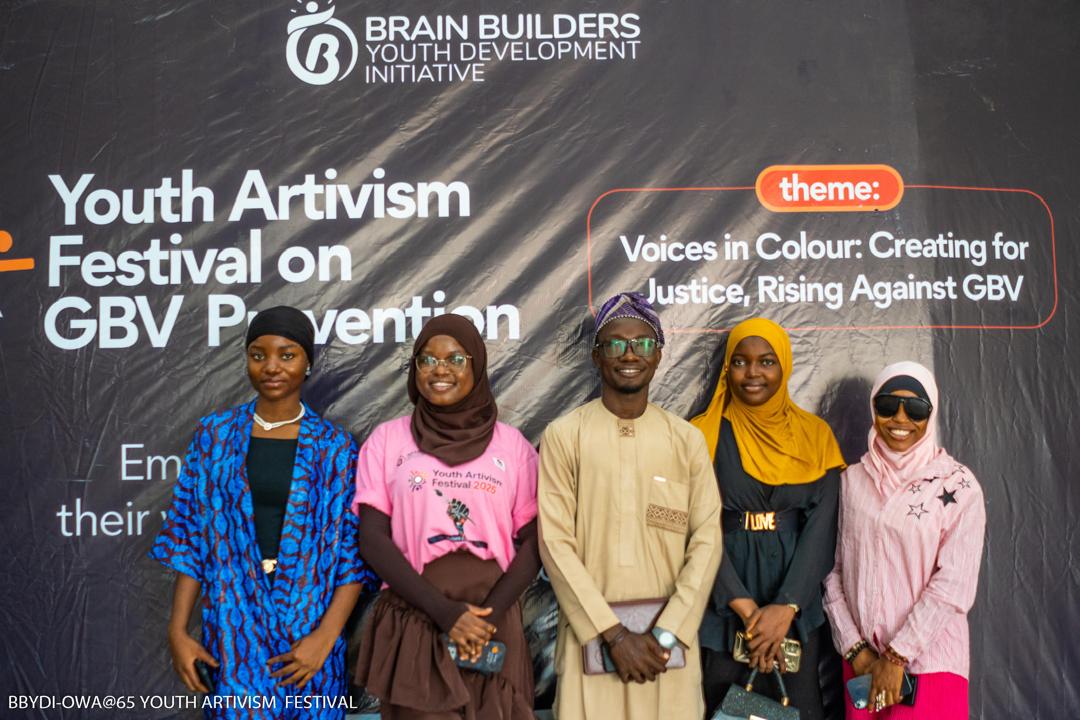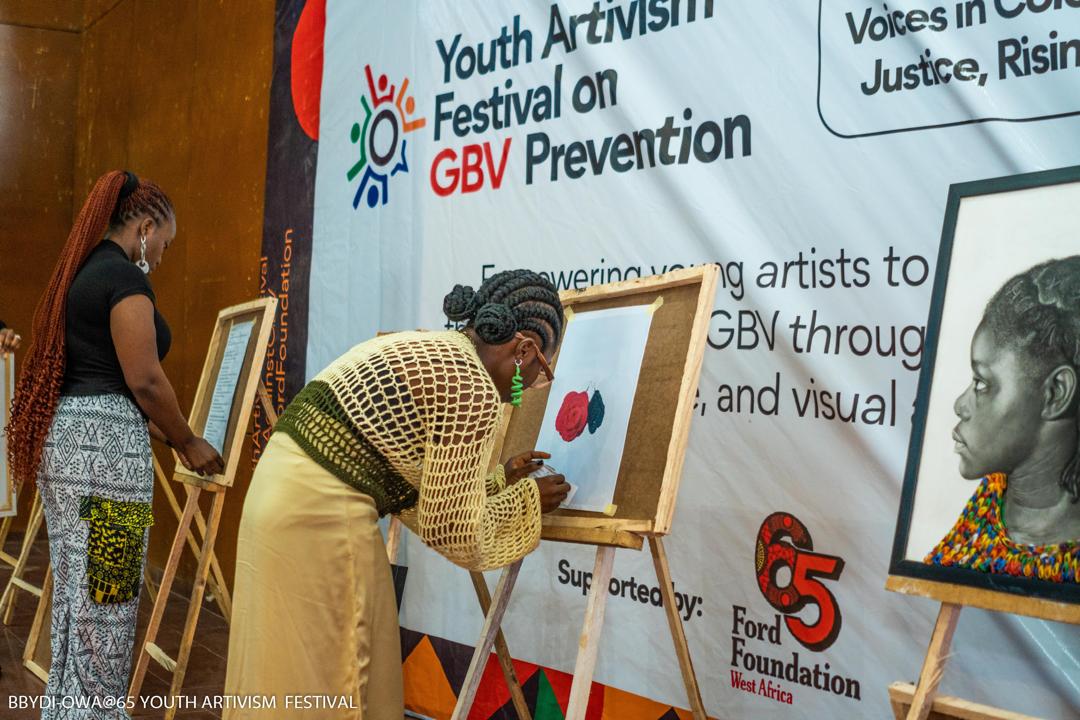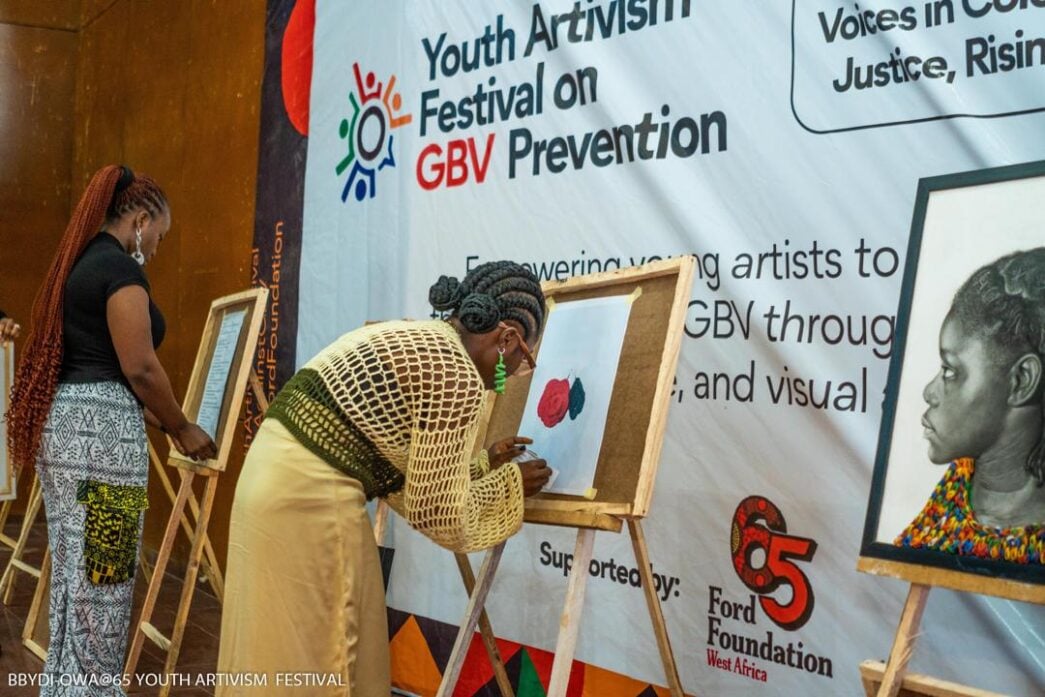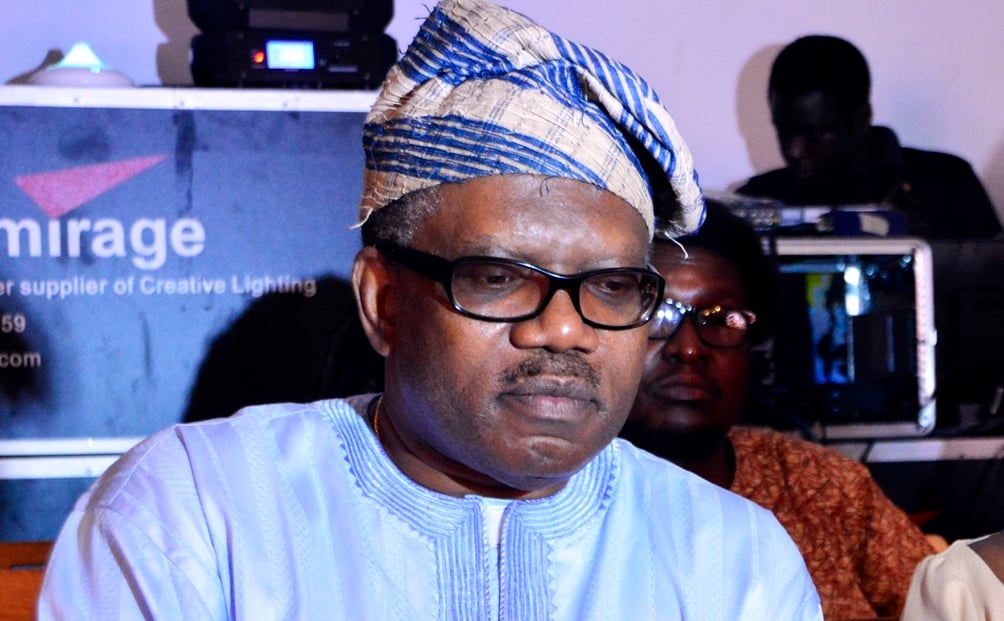A festival in Ilorin, Kwara state capital, has called for stronger use of art to promote social change and gender justice, bringing together hundreds of young creatives, activists, and policymakers to highlight the role of youth-led expression in ending gender-based violence (GBV).
The Youth Artivism Festival, organised by the Brain Builders Youth Development Initiative (BBYDI) with support from the Ford Foundation, was part of activities marking the foundation’s 65th anniversary in West Africa.
Held at the Banquet Hall in Ilorin, the event featured art exhibitions, live performances, panel discussions, and an award ceremony celebrating young Nigerians who use art to challenge social norms and advocate for justice.
In her opening remarks, Nurah Jimoh-Sanni, executive director of BBYDI, emphasised the power of creativity in transforming society and advancing gender justice.
Advertisement

“Young people are not just witnesses to injustice; they are change agents. Through art, they can challenge silence, demand accountability, and inspire action against gender-based violence,” she said.
An exhibition of works by 22 finalists, selected from over 100 submissions from Nigeria’s north-central region, displayed powerful visual narratives on gender justice, empowerment, and resilience. Each piece reflected how art can provoke dialogue, empathy, and social reflection.
Advertisement
The festival’s award ceremony recognised outstanding contributions to “artivism” — the fusion of art and activism.
Usman Adam, a law graduate, won the first-place prize of ₦200,000 for his artwork, Sketching Another Shoulder, which depicted solidarity and shared responsibility in ending GBV.
Simon Thazhigilla from Nasarawa state clinched the second-place prize of ₦150,000 for Bride of War and Anatomy of Science, exploring the emotional and cultural dimensions of violence.
Tobi Olomola, a 25-year-old visual artist, received ₦100,000 for Weight of Becoming, a piece highlighting the burden of identity and social expectations in the context of gender inequality.
Advertisement
All 22 finalists received certificates of recognition for their creativity and advocacy. A closing performance by the D’Stars Drama Troupe left the audience reflecting on the urgency of collective action against GBV.
A panel discussion titled “Art as Advocacy: The Role of Creativity in Preventing Gender-Based Violence” featured contributions from Mal Yusuf Babatunde Abdulqadir, Eduvielawhe Olutimayin of Street Project Foundation, Joy Oluwatoyin Adeboye, Barrister Jumoke Olaoye, and Evang. Funmilayo Olutimehin.
Moderated by Sanni Alausa-Issa, BBYDI’s communications director, the session explored how art can amplify survivors’ voices, shape public perception, and influence policy.
Adeboye, a GBV survivor and advocate, shared her story of healing through art.
Advertisement
“Art gave me back my voice,” she said. “It helped me transform pain into purpose and use my story to inspire others.”
In her closing remarks, Ramat J. Owolabi, BBYDI’s head of women development and climate, commended all partners and participants for their dedication.
Advertisement
“The Youth Artivism Festival is not just an event; it is the beginning of a sustained movement,” she said.
“We are committed to ensuring that art continues to drive advocacy and inspire hope in communities across Nigeria.”
The festival underscored the growing recognition of art as both a medium of expression and a catalyst for social transformation.
Advertisement







